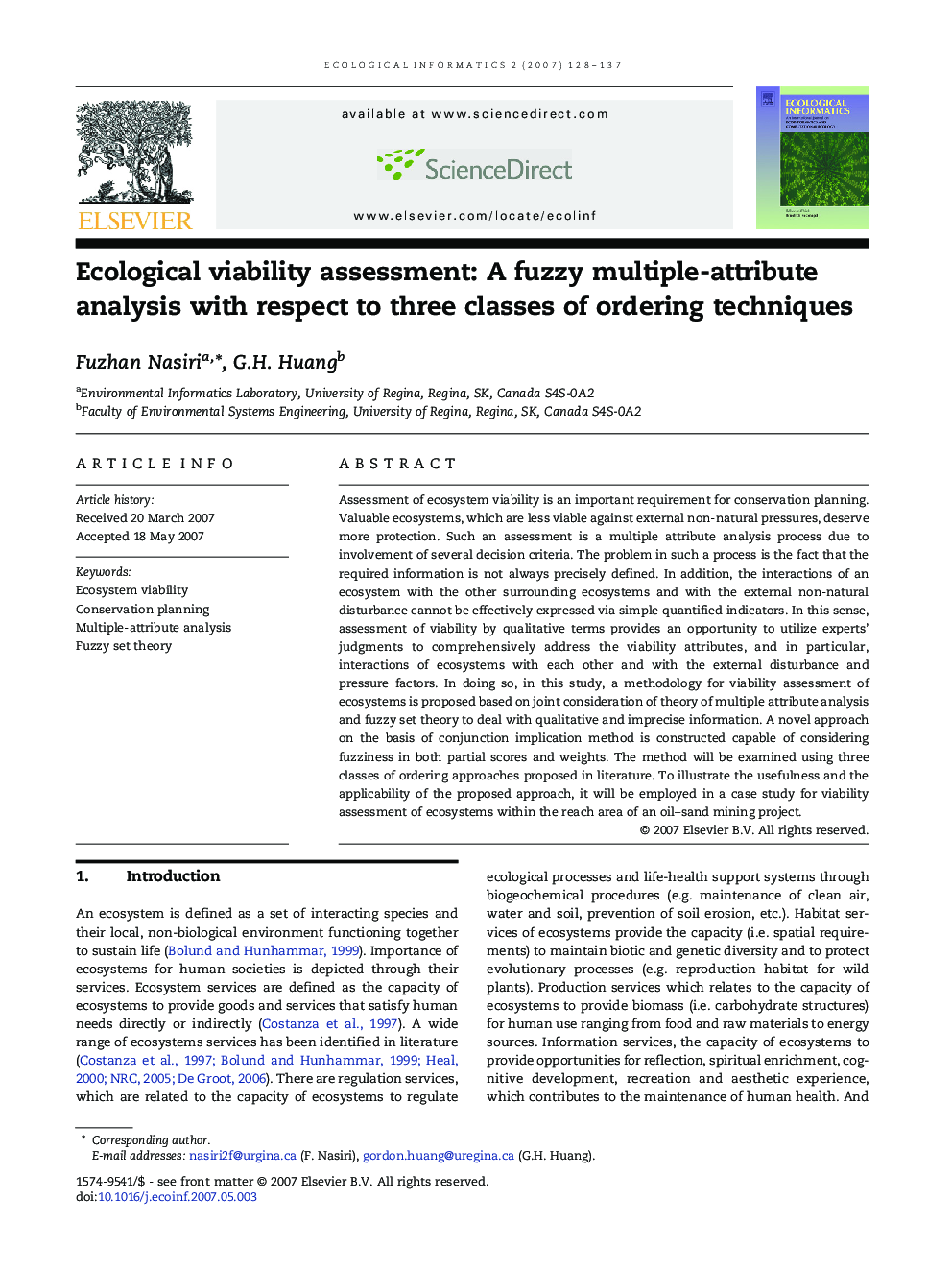| Article ID | Journal | Published Year | Pages | File Type |
|---|---|---|---|---|
| 4375426 | Ecological Informatics | 2007 | 10 Pages |
Abstract
Assessment of ecosystem viability is an important requirement for conservation planning. Valuable ecosystems, which are less viable against external non-natural pressures, deserve more protection. Such an assessment is a multiple attribute analysis process due to involvement of several decision criteria. The problem in such a process is the fact that the required information is not always precisely defined. In addition, the interactions of an ecosystem with the other surrounding ecosystems and with the external non-natural disturbance cannot be effectively expressed via simple quantified indicators. In this sense, assessment of viability by qualitative terms provides an opportunity to utilize experts' judgments to comprehensively address the viability attributes, and in particular, interactions of ecosystems with each other and with the external disturbance and pressure factors. In doing so, in this study, a methodology for viability assessment of ecosystems is proposed based on joint consideration of theory of multiple attribute analysis and fuzzy set theory to deal with qualitative and imprecise information. A novel approach on the basis of conjunction implication method is constructed capable of considering fuzziness in both partial scores and weights. The method will be examined using three classes of ordering approaches proposed in literature. To illustrate the usefulness and the applicability of the proposed approach, it will be employed in a case study for viability assessment of ecosystems within the reach area of an oil-sand mining project.
Related Topics
Life Sciences
Agricultural and Biological Sciences
Ecology, Evolution, Behavior and Systematics
Authors
Fuzhan Nasiri, G.H. Huang,
